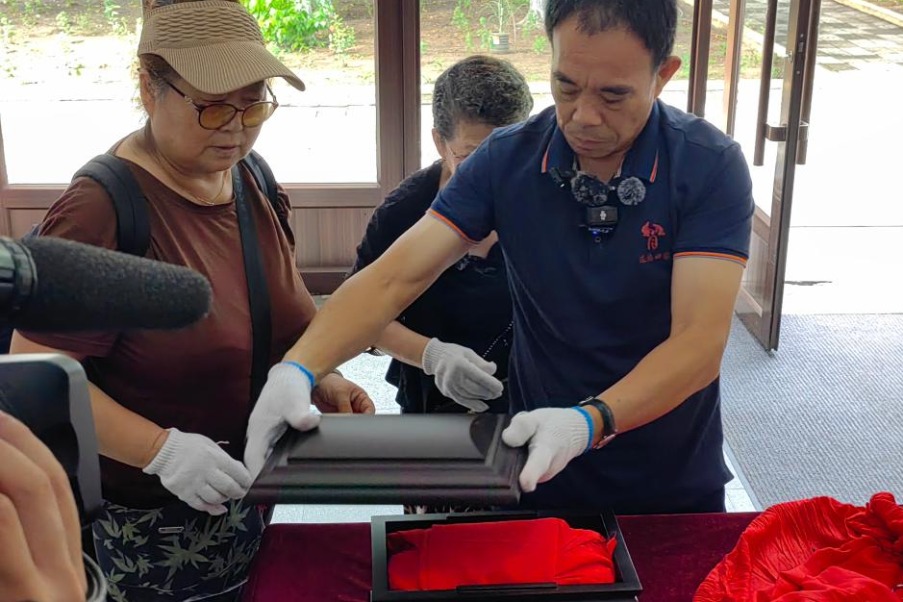Action plan to bolster foreign investment
Measures rolled out to enhance reform and opening-up efforts


China has taken pragmatic measures to expand market access, facilitate the flow of talent and scientific research resources, and align with international economic and trade rules as part of the country's efforts to create a favorable business environment and further open up its economy to global investors, officials and experts said.
Though the downward pressure on the world economy continues to mount and the global outlook for cross-border investments appears less optimistic, China's steady economic growth, expanding consumer market and continuous efforts to improve its business climate have positioned it favorably in the global investment landscape, they added.
They made the comments after the State Council, China's Cabinet, rolled out an action plan outlining a series of measures aimed at bolstering the country's international openness and attracting increased foreign investment in mid-March.
While China has achieved significant milestones and has become a global manufacturing powerhouse over the years thanks to its reform and opening-up policy, the emphasis on attracting and utilizing foreign investment still remains crucial.
"The recent release of the action plan once again highlights China's high regard for attracting foreign investment and its commitment to strengthening beneficial interactions with the global economy through high-level opening-up," said Wu Hao, secretary-general of the National Development and Reform Commission, China's top economic regulator.
The plan, accompanied by concrete actions, aims to enhance the confidence of overseas investors and foster increased investment in China, Wu added.
Despite accounting for only 3 percent of the total number of enterprises in China, statistics from the Ministry of Commerce showed that foreign-invested enterprises have made significant contributions to the country's economy. They are responsible for 40 percent of China's foreign trade volume, about one-sixth of its tax revenue and nearly 10 percent of urban employment.
The emphasis on attracting and utilizing foreign investment goes beyond financial considerations. Foreign investors bring advanced technologies, managerial expertise and international networks that contribute to the upgrading of China's industries and the enhancement of its competitiveness in the global market, said Long Guoqiang, vice-president of the State Council's Development Research Center.
Furthermore, the presence of foreign companies introduces new ideas, good practices and higher standards, encouraging domestic firms to improve their efficiency and product offerings. By partnering with foreign companies, China can further improve its production processes, enhance product quality and promote innovation-driven growth, Long said.
The country saw a significant increase in the number of newly established foreign-invested enterprises last year, according to data released by the Ministry of Commerce, with 53,766 companies being set up nationwide, up 39.7 percent year-on-year.
To further leverage the role of foreign investment, expanding market access and increasing the level of liberalization for foreign investment topped the policy measures listed in the action plan. The plan calls for reducing restrictions outlined in the negative list for foreign investment, allowing greater participation of foreign investors in the field of technological innovation through pilot projects, and facilitating the entry of foreign financial institutions into the banking and insurance sectors.
"In addition to market access, the ability to conduct business operations is crucial for foreign financial institutions," said Zhou Yu, head of the international department of the People's Bank of China, the country's central bank.
Since 2018, China has significantly relaxed market access restrictions in the financial services industry, persuading over 110 foreign financial institutions to expand their operations in China. While ensuring fair competition, China aims to forge an enabling business environment for foreign financial institutions, Zhou said.
For example, the central bank has introduced carbon reduction support tools, taking into account the demands of foreign institutions, and has included 13 foreign banks in the scope of institutions eligible for such tools.
The action plan also emphasizes the smooth flow of innovation resources and promotes collaboration between domestic and foreign-funded enterprises.
Specific measures have been in place to facilitate international business personnel exchanges and ease the visa application process for foreign nationals who want to enter China. Notably, the validity period for visas granted to management personnel, technical staff of foreign-invested enterprises, and their spouses and children, has been extended to two years.
Wang Xiaosong, a professor of economics at the Renmin University of China, said that the essence of fostering new quality productive forces lies in innovation-driven growth, and foreign-funded enterprises play a crucial role in introducing innovative elements, including patents, technology and management.
By removing barriers and restrictions and streamlining channels for the flow of innovation resources, China aims to foster a level playing field where both domestic and foreign enterprises have equal access to services and receive equal treatment, and it encourages the exchange of ideas and knowledge to stimulate technological advancements and create a vibrant atmosphere of creativity and entrepreneurship, Wang added.
Meanwhile, facilitating the exchange of international business personnel is an essential aspect of promoting innovation-driven cooperation between domestic and foreign-funded enterprises.
Since last year, the National Immigration Administration has introduced more than 20 policy measures to attract foreign nationals, providing them with better services to help them enter China and adjust to life in the country.
Jia Tongbin, the head of the administration's foreign management department, highlighted the agency's future plans focusing on attracting talent and promoting investment.
In a bid to remain in step with international economic and trade rules, the country continues to advance its accession into the Comprehensive and Progressive Agreement for Trans-Pacific Partnership and the Digital Economy Partnership Agreement.
China has taken the initiative to create pilot programs on par with the CPTPP standards in some pilot free trade zones, as well as at the Hainan Free Trade Port. Additionally, a group tasked with facilitating the nation's accession to the DEPA has been established to fully advance negotiations, and China is having in-depth exchanges with member countries.
China has faced challenges in its efforts to attract foreign investment as it navigates a landscape marked by intensified competition from developing nations and emerging economies relaxing investment restrictions, as well as "decoupling" and "de-risking" narratives touted by some Western countries, said Wang Xiaohong, a researcher specializing in cross-border investment at the China Center for International Economic Exchanges in Beijing.
That said, China's stable policy environment and comprehensive industrial system provide a solid foundation for foreign investment, said Xu Hongcai, deputy director of the China Association of Policy Science's Economic Policy Committee.
Moreover, China's position as a global economic powerhouse is underpinned by its vast consumer market and ongoing economic transformation. The country's growing middle class and rising disposable income have fueled demand for high-quality products and services, presenting a significant opportunity for foreign businesses, Xu added.
wangkeju@chinadaily.com.cn
- American musician: the Silk Road influenced American music
- China upgrades Ragasa to super typhoon
- Over 5,000 photographers showcase work in Shanxi's ancient city of Pingyao
- Li calls on US lawmakers to enhance exchanges, ties
- Luxury brands drop ads featuring S. Korean actress after she insults China
- Jiangmen activates Chikungunya fever L3 emergency response




































